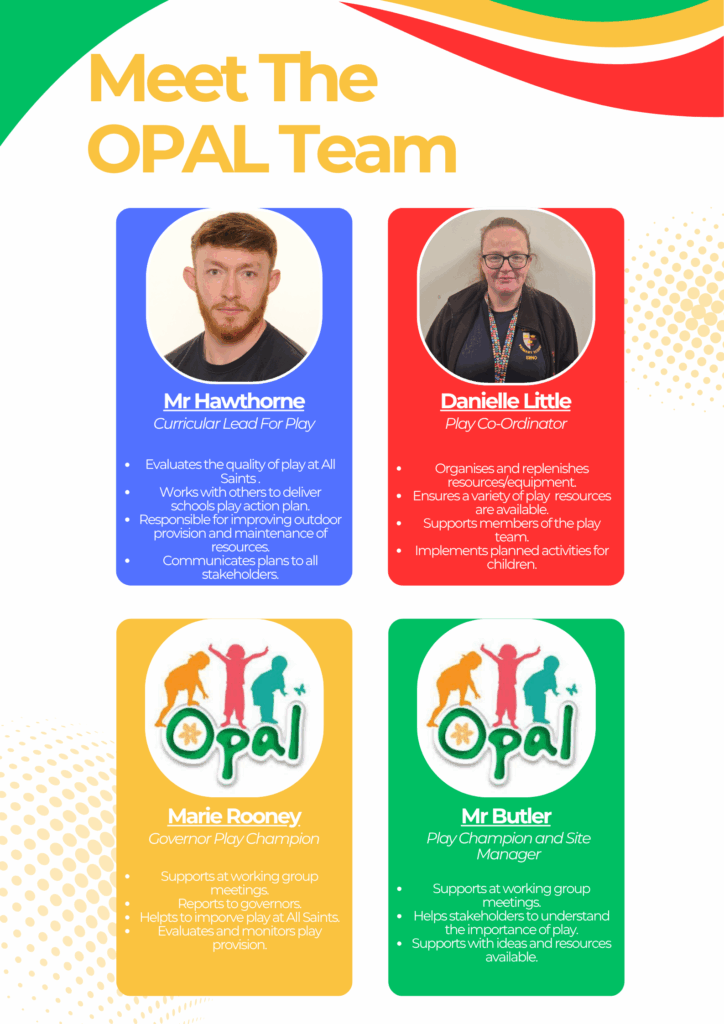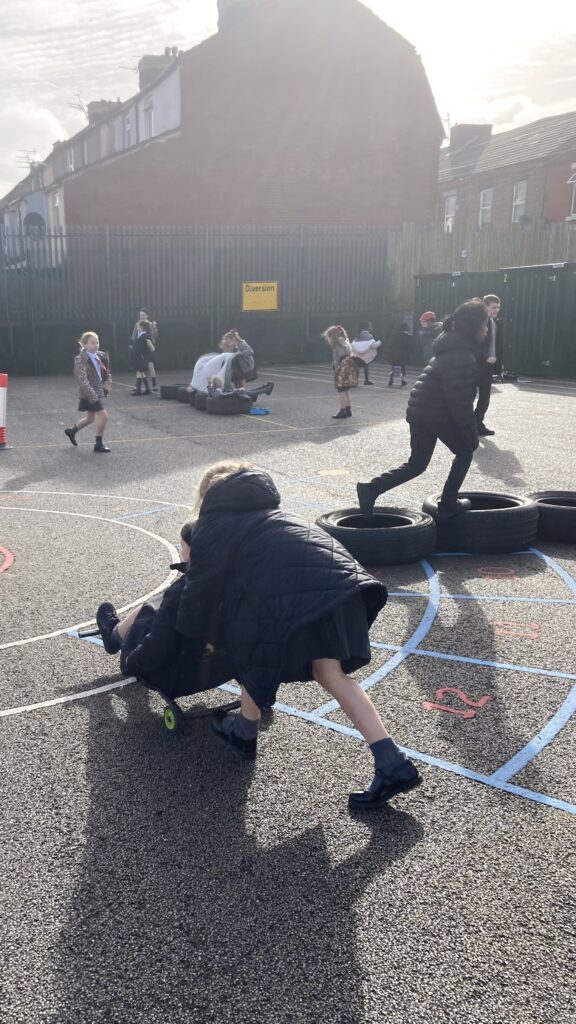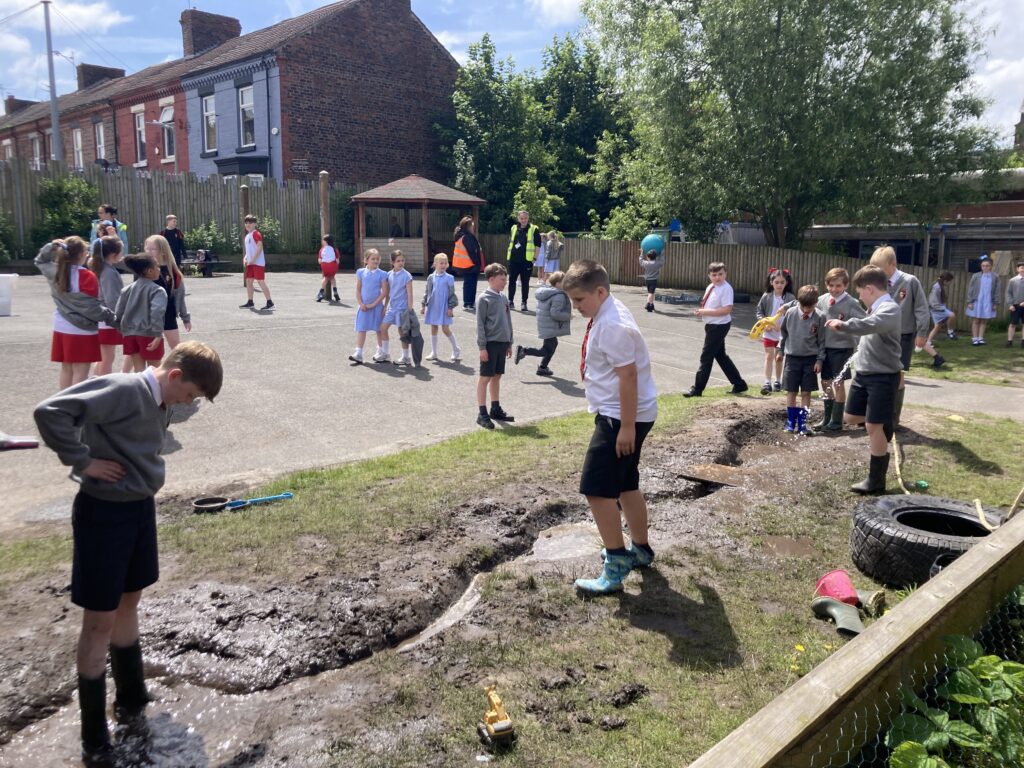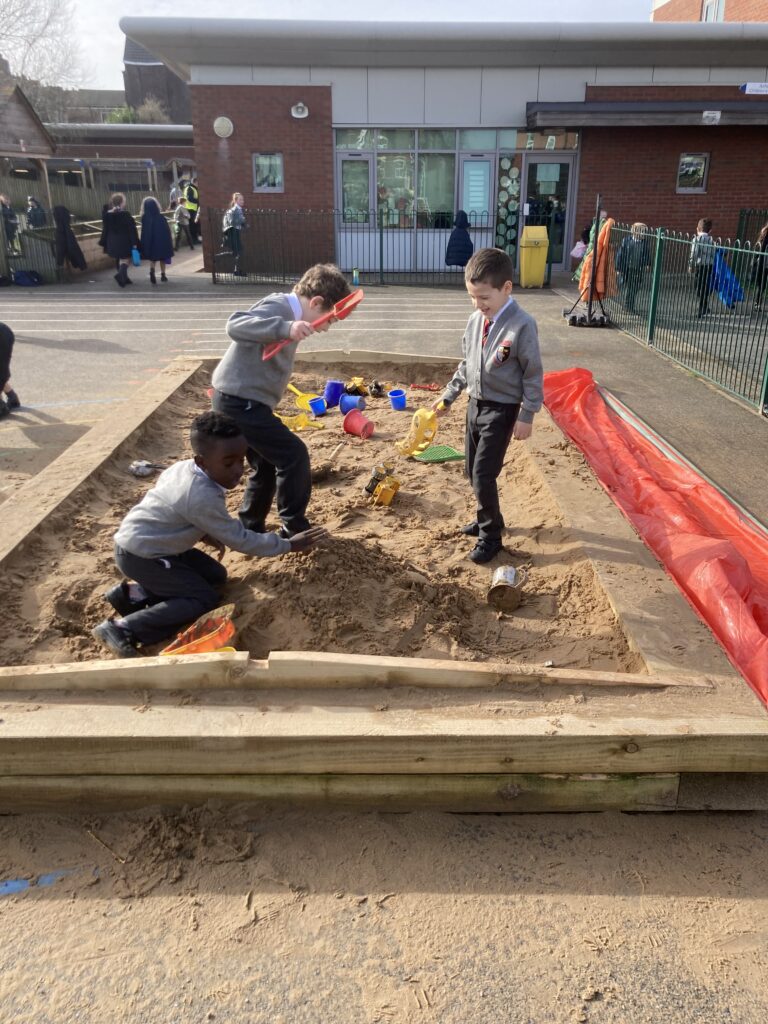What is OPAL?
We have recently started a programme to improve opportunities for physical activity,
socialisation, co-operation, coordination, resilience, creativity, imagination and
enjoyment through improved play. It is an 18-24 month programme so watch this
space for updates and progress.
The OPAL Outdoor Play and Learning Programme is the result of 17 years testing
and development in over 250 schools and is now used in Canada and New Zealand
as well as across the UK. Work has started to adapt the programme for schools in
Slovakia, Czech Republic, Hungary, Poland and Austria. In 2018 OPAL won first
prize in an EU funded award for the best active school’s programme in Europe.
It is based on the idea that as well as learning through good teaching, your children
also learn when they play, and as 20% of their time in school is playtime, we want to
make sure that this amount of time (equivalent to 1.4 years of primary school) is as
good as possible.
Why are we following the OPAL programme?
One reason we are carrying out this programme is that childhood has changed and
many children no longer get their play need met out of school.
– Average screen time per day 5 hours
– Average outdoor play time per week 5 hours
– Percentage of UK children who only play outdoor with other children at school
56%
There are many proven benefits for schools which carry out the OPAL Programme.
They usually include: more enjoyment of school, less teaching time lost to disputes
between children, less accidents and greatly improved behaviour.
The Benefits of Play
- Children learn through their play.
Don’t underestimate the value of play. Children learn and develop:
cognitive skills – like math and problem solving in a pretend grocery store
physical abilities – like balancing blocks and running on the playground
new vocabulary – like the words they need to play with toy dinosaurs
social skills – like playing together in a pretend car wash
literacy skills – like creating a menu for a pretend restaurant
- Play is healthy.
Play helps children grow strong and healthy. It also counteracts obesity issues facing
many children today.
- Play reduces stress.
Play helps your children grow emotionally. It is joyful and provides an outlet for
anxiety and stress.
- Play is more than meets the eye.
Play is simple and complex. There are many types of play: symbolic, sociodramatic,
functional, and games with rules-–to name just a few. Researchers study play’s
many aspects: how children learn through play, how outdoor play impacts children’s
health, the effects of screen time on play, to the need for recess in the school day.
- Make time for play.
As parents, you are the biggest supporters of your children’s learning. You can make
sure they have as much time to play as possible during the day to promote cognitive,
language, physical, social, and emotional development.
- Play and learning go hand-in-hand.
They are not separate activities. They are intertwined. Think about them as a
science lecture with a lab. Play is the child’s lab.
- Play outside.
Remember your own outdoor experiences of building forts, playing on the beach,
sledding in the winter, or playing with other children in the neighbourhood. Make sure
your children create outdoor memories too.
- There’s a lot to learn about play.
There’s a lot written on children and play. Here are some NAEYC articles and books
about play. David Elkind’s The Power of Play (Da Capo, 2007 reprint) is also a great
resource.
- Trust your own playful instincts.
Remember as a child how play just came naturally? Give your children time for play
and see all that they are capable of when given the opportunity.
- Play is a child’s context for learning.
Children practice and reinforce their learning in multiple areas during play. It gives
them a place and a time for learning that cannot be achieved through completing a
worksheet. For example, in playing restaurant, children write and draw menus, set
prices, take orders, and make out checks. Play provides rich learning opportunities
and leads to children’s success and self-esteem.
How Can You Help?
Play is not messing about. It is the process evolution has come up with to enable
children to learn all of the things that cannot be taught, while also feeling like it is fun.
There are certain things children must have in order to be able to play. These
include:
Having clothes that you can play in
Having things to play with
Having a certain amount of freedom
As the school improves play opportunities for your children, you may find the school
is asking you for resources and is making changes about how the children use the
school grounds. They may use more of the grounds, for more of the year. Your
children may get a bit messier, be exposed to more challenges and have greater
freedoms to play where, with whom and how they like. The experiences the school is
fostering are essential for children’s physical and mental well-being and healthy and
in line with all current good practice advice on health safety, well-being and
development.
More information
You will be able to learn all about OPAL and watch several videos about the
programme on the OPAL website: www.outdoorplayandleaning.org.uk.




